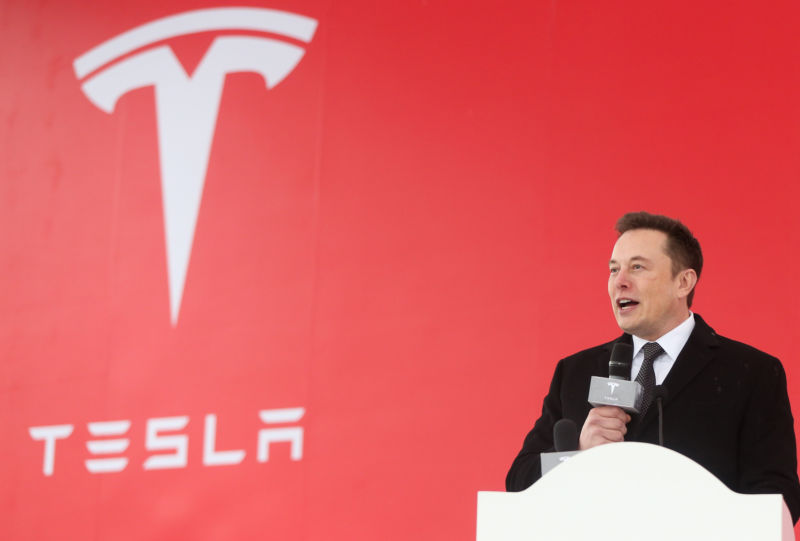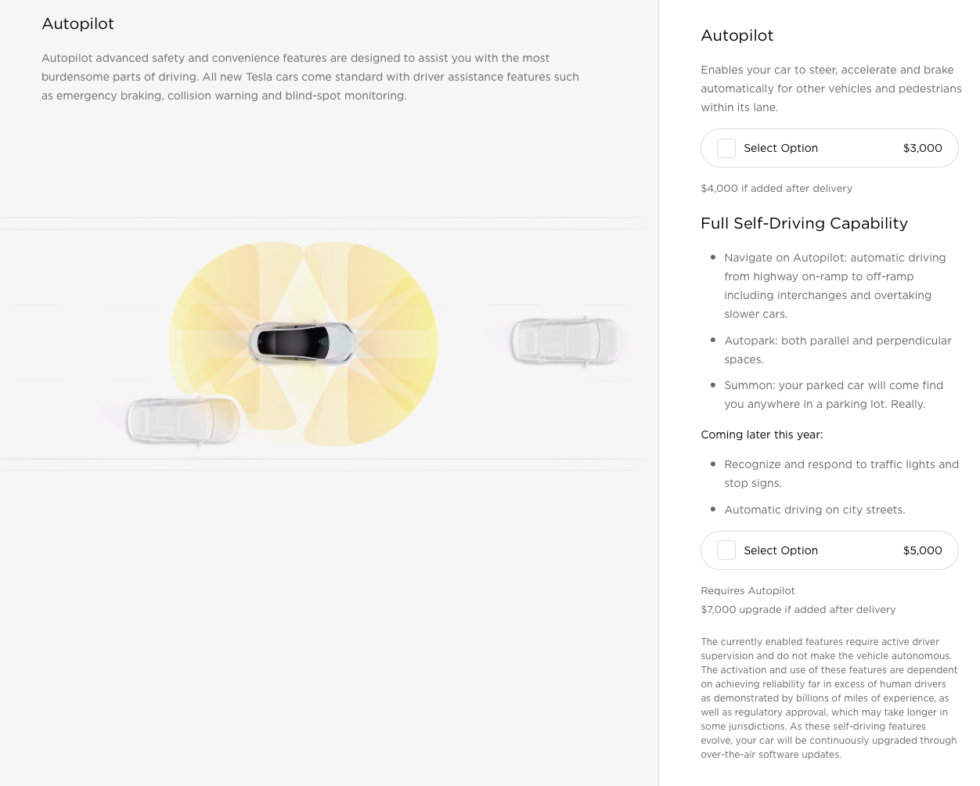
On Thursday afternoon, Tesla announced that it’s finally ready to start selling the cheapest versions of its Model 3 electric vehicle. For $35,000—before any federal or local tax incentives—you can now order a rear-wheel drive Model 3 Standard Range. This car gets black paint and the as-yet unseen standard interior, which means manual (not power assisted) seat and steering adjustment, cloth trim, and a stripped-down audio system. Tesla says the cheapest Model 3 will have 220 miles of range, will hit 60mph (96km/h) in 5.6 seconds before topping out at 130mph (209km/h).
The company is also now offering a $37,000 Model 3 Standard Range Plus. This upgrades the performance slightly—now it’s got 240 miles (386km) of range, shaves 0.3 seconds off the 0-60 time, and adds 10mph (16km/h) in top speed. And you get a “Partial Premium” interior, which restores the power seats, vegan synthetic leather, and a better audio system, among other features.
Tesla CEO Elon Musk said that anyone in the US who orders one of the new Model 3s should take delivery before June (when the IRS tax credit halves again), but priority will go to reservation holders.
Although these standard-range Model 3s will ship with all the hardware necessary for Autopilot, it’s an extra $3,000 to have this functional before the car is delivered, or $4,000 if you change your mind and want to add it after delivery, which should take place in “three to six months,” according to Musk.
Surprisingly, Tesla has restored the “Full Self Driving” option to its cars. However, $5,000 (or $7,000 after delivery) does not buy a level 4 autonomous vehicle. Instead, FSD is now defined as the Navigate on Autopilot, Autopark, and Summon functions, some of which have been available until now as part of the “Enhanced Autopilot.” (Summon appears to have been enhanced according to the description.) Tesla’s website also says that the ability to “recognize and respond to traffic lights and stop signs” is coming later this year, as well as “automatic driving on city streets.”

Musk says he’s certain that Tesla will be feature-complete for FSD later this year, but “the driver will still have to pay attention, because the reliability issue will take longer to address… and we’ll need regulators to agree that a driver’s attention is no longer necessary.” On the call, Musk said he thought that, once the fleet had accumulated 10 billion miles of supervised use, there should be sufficient data to convince the necessary authorities that the system is safe to use unsupervised.
However, these new, cheaper Teslas come at a cost. Tesla also announced that it is now moving to an entirely online sales model and will be shuttering most of its retail locations in the US. “Going to online only is incredibly helpful to us; in many parts of the US, we’re unable to sell cars because of franchise laws. This substantially opens up our ability to buy cars. It’s 2019—people want to buy stuff online,” Musk said.
That means job losses. “There’s no other way for us to achieve the savings required to produce this car and still remain profitable. There’s no way around it,” Musk said. However, when asked about the number or timing of job losses, Musk would not be drawn into details and dismissed the question as “not today’s topic.”
https://arstechnica.com/?p=1466747

